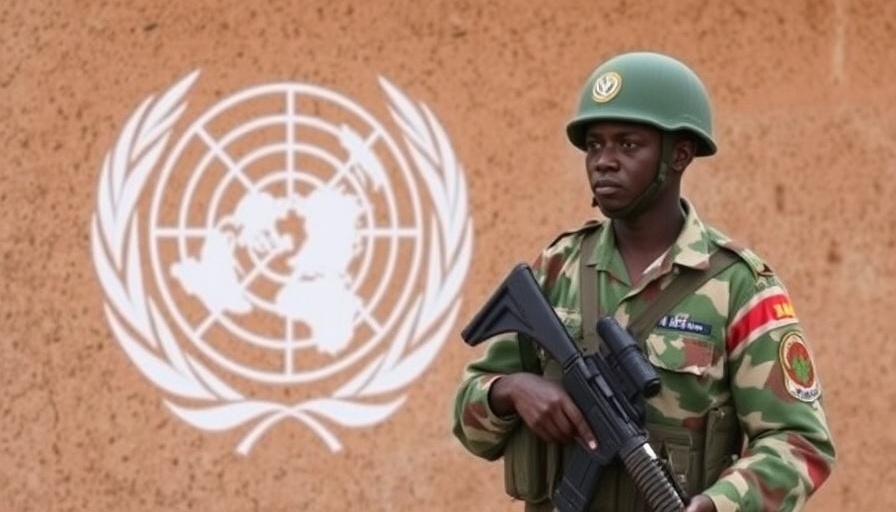
UN Condemns Tragic Killing of Kenyan Peacekeeper in CAR
The recent murder of a Kenyan peacekeeper in the Central African Republic (CAR) has sparked palpable outrage from the United Nations Security Council (UNSC), shining a harsh spotlight on the ongoing conflicts plaguing this mineral-rich nation. During a routine patrol near Tabane, a village in the southeastern region of CAR, the peacekeeper was fatally attacked by an unidentified armed group on March 29. This incident underscores the perilous circumstances that peacekeepers face as they endeavor to uphold stability and protect civilian lives in volatile environments.
Call for Justice Amid Ongoing Violence
Florence Marchal, spokesperson for the UN Multidimensional Integrated Stabilisation Mission in CAR (Minusca), confirmed the incident, urging the need for swift justice. UN Secretary-General Antonio Guterres expressed grave concern over the attack, reminding Bangui authorities of their responsibility to identify and prosecute those behind such acts, emphasizing that attacks on peacekeepers may amount to war crimes under international law.
Historical Context: A Cycle of Violence
The CAR has a troubled past, marred by coups and civil wars since its independence from France in 1960. Following a takeover by Islamist rebels in 2013 that toppled President François Bozizé, the situation has devolved into chaos, with various armed groups vying for power. Although a peace agreement was reached in 2019, the resignation of several signatory groups has hindered lasting peace and stability.
Emerging Perspectives: The Role of Foreign Actors
The conflict in CAR is further complicated by the involvement of foreign actors, particularly the Russian-backed Wagner Group, which claims to restore order in its operational zones. While some locals view this intervention as necessary, the reliance on foreign mercenaries raises significant concerns regarding national sovereignty and the efficacy of long-term peace initiatives.
Conclusion: Implications for African Governance and Foreign Relations
This tragic event not only highlights the challenges facing UN peacekeeping missions but also reflects broader issues within African governance and foreign relations, especially amidst growing calls for reforms in international engagement in conflict zones. It emphasizes the need for comprehensive solutions that involve local communities, African leaders, and global stakeholders in effective dialogue and action to foster sustainable peace.
As business leaders and policymakers assess the CAR’s future and its implications for regional stability and economic potential, the international community must remain vigilant and support efforts to uphold justice and protect those working to safeguard peace.
 Add Row
Add Row  Add
Add 


 Add Row
Add Row  Add
Add 

Write A Comment